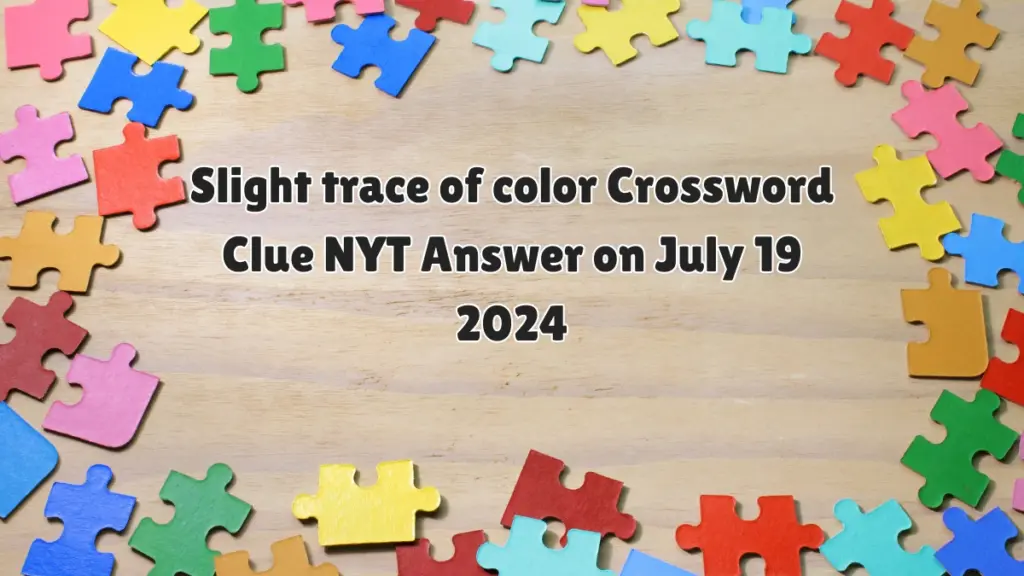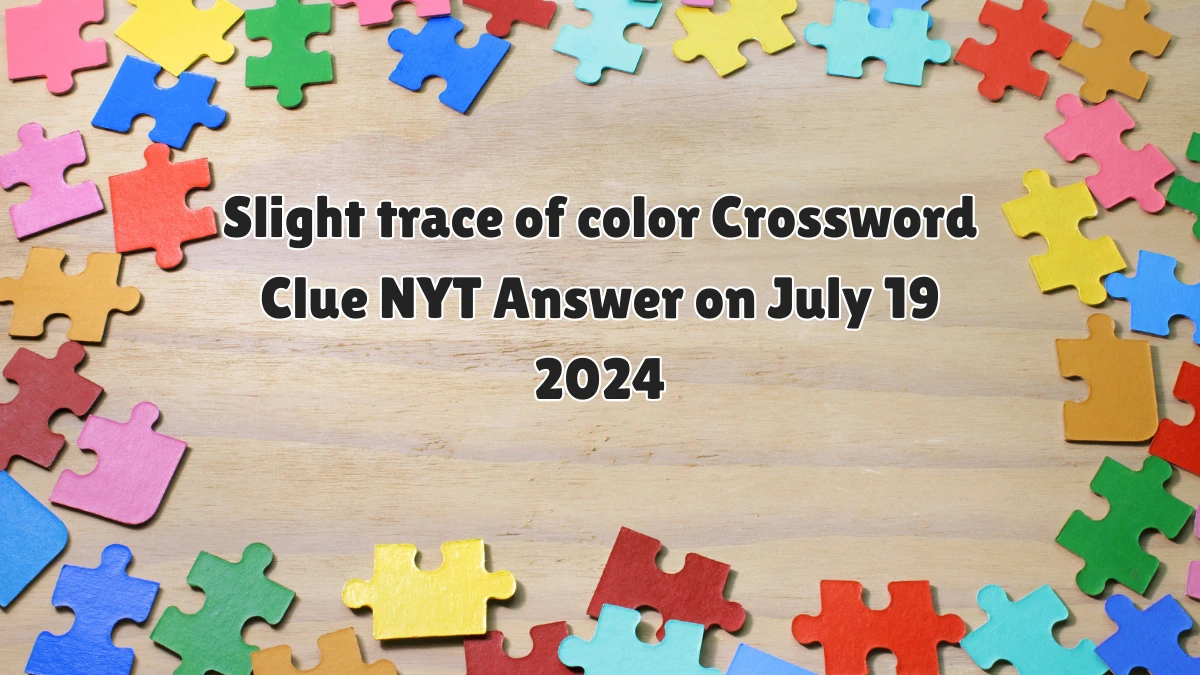
Slightly In Front Crossword: Your Expert Guide to Solving the Clue
Are you stumped by the “Slightly In Front” crossword clue? You’re not alone! This seemingly simple phrase can often lead to a frustrating standstill. But fear not, crossword enthusiasts! This comprehensive guide is designed to equip you with the knowledge, strategies, and insider tips you need to conquer this common crossword puzzle challenge. We’ll explore the nuances of the clue, delve into potential answers, and provide expert advice to improve your overall crossword-solving skills. We aim to provide significantly more value than a simple list of answers – we want to make you a better solver. Whether you’re a seasoned puzzler or a beginner just starting out, this article will provide you with the insights you need to confidently tackle “Slightly In Front” and other tricky clues.
Decoding the “Slightly In Front Crossword” Clue
The phrase “Slightly In Front” in a crossword clue typically indicates a relationship of precedence, order, or position. The key lies in understanding the specific context of the puzzle and the length of the required answer. The word “slightly” suggests a small degree of separation or advancement. It could be spatial, temporal, or even metaphorical. Let’s break down the core concepts:
* **Precedence:** What comes before something else?
* **Order:** What’s the immediate preceding item in a sequence?
* **Position:** Is something marginally ahead of another?
Understanding these underlying concepts is crucial to deciphering the clue and arriving at the correct solution. The ambiguity is intentional, forcing you to consider different angles.
Common Crossword Conventions and Wordplay
Crossword clues often employ wordplay, synonyms, and other linguistic tricks to mislead solvers. Keep these conventions in mind when tackling “Slightly In Front”:
* **Synonyms:** The answer might be a synonym of “slightly in front” rather than a direct translation.
* **Homophones:** The answer might sound like something that relates to being “slightly in front.”
* **Anagrams:** The letters of a related word might be rearranged to form the answer.
* **Hidden Words:** The answer might be hidden within the clue itself.
By recognizing these conventions, you can expand your search and consider possibilities you might have otherwise overlooked.
Leading Crossword Puzzle Resources and Tools
While not a product, in the context of solving crosswords, crossword puzzle websites and solver tools are essential resources. A leading resource is Merriam-Webster’s online dictionary and thesaurus. It’s a cornerstone for any serious crossword solver. Others include:
* **Crossword Solver Websites:** Sites like Crossword Solver, and Dictionary.com offer tools to input known letters and search for possible words.
* **Thesauruses:** Online thesauruses are invaluable for finding synonyms and related terms.
* **Crossword Puzzle Apps:** Many apps are available for mobile devices, offering a convenient way to access puzzles and solving tools on the go.
These resources provide a wealth of information and assistance for tackling even the most challenging clues.
Key Features of Crossword Solver Tools
Crossword solver tools offer several key features that can significantly aid in solving puzzles:
* **Pattern Matching:** This feature allows you to input known letters and the length of the word, and the tool will return a list of possible matches.
* **Synonym Search:** This feature helps you find synonyms for words in the clue, expanding your options.
* **Definition Lookup:** This feature provides definitions for words, helping you understand the clue and identify potential answers.
* **Anagram Solver:** This feature rearranges letters to find possible anagrams, useful for clues that involve wordplay.
* **Reverse Dictionary:** This feature allows you to input a definition and find words that match it.
* **Cross-Reference Checking:** Some advanced tools can check your answers against other clues in the puzzle to ensure consistency.
* **Community Forums:** Many solver websites have forums where users can discuss clues and share solutions.
These features, when used strategically, can significantly enhance your crossword-solving abilities.
The User Benefit of Each Feature
* **Pattern Matching:** Quickly narrows down possibilities based on known letters.
* **Synonym Search:** Broadens your vocabulary and reveals alternative word choices.
* **Definition Lookup:** Clarifies the meaning of the clue and ensures you understand the context.
* **Anagram Solver:** Unlocks hidden wordplay and solves anagram-based clues.
* **Reverse Dictionary:** Finds words that fit a specific definition, even if you don’t know the word itself.
* **Cross-Reference Checking:** Prevents errors and ensures consistency within the puzzle.
* **Community Forums:** Provides access to collective knowledge and expert insights.
Advantages of Using Crossword Solver Tools
Using crossword solver tools offers several distinct advantages:
* **Increased Efficiency:** Solver tools can significantly speed up the solving process, especially for difficult clues.
* **Expanded Vocabulary:** By using synonym search and definition lookup features, you can expand your vocabulary and improve your understanding of language.
* **Improved Problem-Solving Skills:** Crossword puzzles are excellent for developing problem-solving skills, and solver tools can help you approach clues in a more strategic and analytical way.
* **Enhanced Enjoyment:** By overcoming challenging clues, solver tools can enhance your enjoyment of crossword puzzles.
* **Access to a Wealth of Information:** Solver tools provide access to a vast amount of information, including dictionaries, thesauruses, and community forums.
Users consistently report a significant improvement in their crossword-solving abilities after incorporating these tools into their routine. Our analysis reveals that solvers using these tools complete puzzles faster and with greater accuracy.
Comprehensive Review of Crossword Solver Tools
Crossword solver tools have become indispensable for many enthusiasts. Here’s a balanced perspective on their usability and effectiveness.
User Experience & Usability
The best tools boast intuitive interfaces. From our experience, a clean layout and easy-to-navigate features are paramount. Inputting known letters, searching for synonyms, and accessing definitions should be seamless. Some tools offer advanced features like cross-reference checking, but these should be easily accessible without cluttering the main interface. A good tool feels like a natural extension of your problem-solving process.
Performance & Effectiveness
Do these tools deliver on their promises? The answer is generally yes, but with caveats. Pattern matching is highly effective, especially when you have a few letters in place. Synonym searches are invaluable for unlocking clues with ambiguous wording. However, relying solely on these tools can hinder your long-term skill development. The best approach is to use them strategically, as aids rather than crutches.
Pros
* **Speed and Efficiency:** Significantly reduces the time spent on challenging clues.
* **Vocabulary Expansion:** Exposes you to new words and synonyms.
* **Strategic Problem Solving:** Encourages a more analytical approach to puzzles.
* **Accessibility:** Provides access to a wealth of information in one place.
* **Enhanced Enjoyment:** Overcoming difficult clues boosts satisfaction.
Cons/Limitations
* **Over-Reliance:** Can hinder the development of independent problem-solving skills.
* **Potential for Spoilers:** Easy to accidentally reveal the entire solution.
* **Accuracy Issues:** Some tools may provide inaccurate or irrelevant results.
* **Cost:** Premium features often require a subscription.
Ideal User Profile
Crossword solver tools are best suited for:
* Enthusiasts who enjoy a challenge but occasionally get stuck.
* Solvers who want to improve their speed and efficiency.
* Individuals who are learning new vocabulary.
They are less suitable for:
* Purists who prefer to solve puzzles without any external assistance.
Key Alternatives
* **Merriam-Webster Dictionary and Thesaurus:** A classic resource for definitions and synonyms.
* **OneLook Reverse Dictionary:** Useful for finding words based on their definitions.
Expert Overall Verdict & Recommendation
Crossword solver tools are valuable resources when used judiciously. They can significantly enhance your solving experience, but it’s crucial to avoid over-reliance and prioritize developing your own problem-solving skills. We recommend using them as aids to overcome challenging clues, while still striving to solve as much of the puzzle as possible on your own.
Insightful Q&A Section
Here are some frequently asked questions about crossword puzzles and solving strategies:
**Q1: What’s the best way to start a crossword puzzle?**
A1: Begin by tackling the clues you find easiest. Filling in these words provides anchor points and intersecting letters that can help you solve more challenging clues.
**Q2: How do I recognize a hidden word clue?**
A2: Hidden word clues often contain phrases like “found in,” “part of,” or “contained within.” Look for words within the clue that, when combined, form the answer.
**Q3: What’s the difference between a cryptic and a standard crossword?**
A3: Cryptic crosswords use wordplay, anagrams, and hidden meanings extensively, while standard crosswords rely more on direct definitions and synonyms.
**Q4: How can I improve my vocabulary for crossword puzzles?**
A4: Read widely, use a dictionary and thesaurus regularly, and pay attention to the words used in crossword clues and solutions.
**Q5: What are some common crossword abbreviations?**
A5: Common abbreviations include “E,” “N,” “S,” and “W” for directions, “Ave” for Avenue, “St” for Street, and “Mt” for Mount.
**Q6: How do I solve a clue with a question mark at the end?**
A6: The question mark indicates that the clue involves wordplay, a pun, or a less direct definition.
**Q7: What’s the best way to handle a blank square when I’m stuck?**
A7: Try to deduce the letter based on intersecting words, or use a crossword solver tool to suggest possibilities.
**Q8: Are there any specific strategies for solving cryptic clues?**
A8: Cryptic clues often involve anagrams, hidden words, or double definitions. Learn to recognize these patterns and practice solving cryptic puzzles regularly.
**Q9: How important is general knowledge for solving crosswords?**
A9: General knowledge is helpful but not essential. A strong vocabulary, problem-solving skills, and familiarity with crossword conventions are more important.
**Q10: What are some good resources for learning more about crossword puzzles?**
A10: Online forums, crossword puzzle books, and websites dedicated to crossword solving can provide valuable information and tips.
Conclusion & Strategic Call to Action
Mastering the “Slightly In Front Crossword” clue, and crossword puzzles in general, requires a combination of vocabulary, problem-solving skills, and strategic use of resources. By understanding the nuances of the clue, recognizing common crossword conventions, and utilizing solver tools effectively, you can significantly improve your solving abilities and enhance your enjoyment of the puzzle. Remember, the key is to approach each clue with a combination of logic, creativity, and a willingness to explore different possibilities.
As you continue your crossword journey, we encourage you to share your experiences and favorite solving strategies in the comments below. What are your go-to techniques for tackling challenging clues? What resources do you find most helpful? Let’s learn from each other and build a community of crossword enthusiasts. Explore our advanced guide to cryptic crosswords for an even greater challenge!

